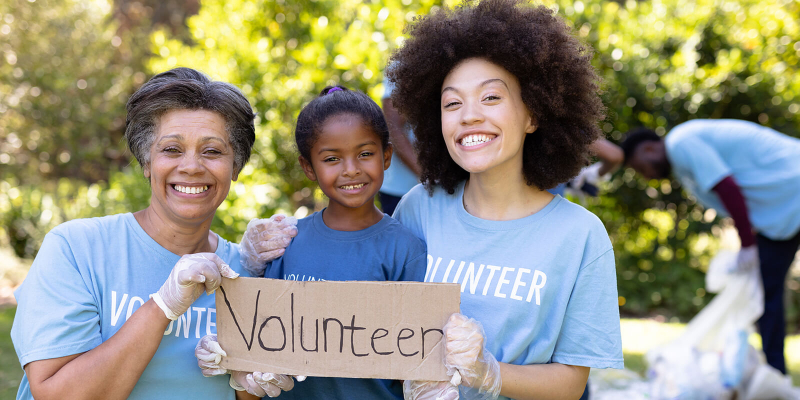Top 10 Best Things to Do If You’re Feeling Lonely
Loneliness is going around, and it’s having a pretty big impact. Long-term loneliness may emotionally drain you and make life feel hopeless and pointless. ... read more...These suggestions below can help you in managing and preventing loneliness, whether it be because of the pandemic or for other reasons, from wearing you down.
-
Realizing what you're going through is the first step in moving forward. Most people attempt to ignore their feelings of loneliness or believe they are just anxious or depressed. Many people are ashamed to say they're lonely because they connect the feeling with social isolation and being different.
You must accept that sometimes, everyone experiences loneliness. Furthermore, being lonely is not a sign of weakness or of being failure. You're still a person, that's all. According to studies, labeling your emotions can reduce their intensity of them. Therefore, just giving your loneliness a name might make it easier for your brain to understand how you're feeling and quickly make you feel a bit less lonely.

Acknowledge that you feel lonely 
Acknowledge that you feel lonely -
According to a study, a happy, mentally healthy brain is one that often reflects on experiences that make one feel great and grateful. Redirecting one's thoughts to happier times or memories of good experiences, especially during stressful or depressing times, may show to be a highly effective defense against anxiety and depression.
You've probably received advice to write down positive memories before, but you've never taken it to heart. Give it a serious try right now. Even just setting aside 15 minutes every day to write down memorable experiences you've had with friends and family might help you get over bad moods. You'll be reminded that you're not alone during the process, and the memories will undoubtedly lift your mood.

Write down positive memories 
Write down positive memories -
Loneliness itself is not harmful to physical or mental health; rather, it is what you do with it and how you deal with it that can be harmful. Consider volunteering to ensure that you are letting loneliness lead you in the right direction.
Spending a day helping the elderly or preparing food at a soup kitchen can satisfy your need to feel helpful and will distract you from the self-centered mindset that loneliness promotes brings on. Additionally, spending time getting to know the people you're serving will help you feel more connected and intimate, which is something you've been craving. According to one research, volunteering two hours each week can reduce loneliness. Many people experience temporary loneliness, but long-term loneliness can have negative health effects. It could just take two hours a week to ease it.

Volunteer 
Volunteer -
If you want to connect with new people, find the community activities that could be a good fit for you. You'll probably find that there are many opportunities to interact with people, from reading clubs and community service projects to hiking clubs and business societies.
At first, it could seem unpleasant, but it might also be completely worthwhile. In fact, socializing with people you have something in common increases your chances of making meaningful relationships, which is usually what lonely people lack in their lives. For example, enroll in a pottery class or a group for people who enjoy watching true crime movies. Don't forget to chat with many of people when you attend an event. You could find that going to a few associations or joining a few different groups makes it easier for you to meet more people.

Join a group or club 
Join a group or club -
According to studies, practicing gratitude might improve your relationships and make you feel happier. Consider the people in your life whom you respect. They might be someone from the past who had a significant influence on your life, like a mentor when you were young. They may also be a friend who helped you move recently or someone you see more regularly.
To express your gratitude, think about calling, texting, or writing a handwritten card or letter to this person. Not only will your action probably make someone's day better, but by encouraging the connection and being kind, you will also likely feel better about yourself. Maintaining a gratitude notebook in which you express your gratitude might help your mental health. Writing in a gratitude diary encourages you to focus on what you have rather than what you lack.

Practice gratitude 
Practice gratitude -
According to research, spending time outside has advantages for both cognitive and mental health as well as mood and emotional well-being. In order to greatly improve your health and well-being, you need to spend at least 2 hours every week outside, either at one time or over several visits.
This type of nature therapy was the topic of the first significant research study in 1995. It was shown that participants who spent 40 minutes walking among cedar trees had lower cortisol levels (a key marker of stress) than those who walked in an indoor environment with the same humidity and temperature. So just a few minutes outside can stop your mood from worsening and can help combat feelings of dread that loneliness brings on.

Spend time in nature 
Spend time in nature -
It might be hard to think about anything else, even the things you often find enjoyable, while you're lonely. Even so, engaging in favorite hobbies might pass the time until you can see your loved ones again. In the middle of chaos, engaging in activities you like, such as yoga, video games, or baking, might help you feel balanced and find some inner peace.
Having a creative outlet may improve your mood and help you live in the moment. Make it a top priority to find a hobby if you don't already have one. Try out various hobbies, such as pottery or fishing, until you find something you enjoy. Remember that hobbies and calming activities are also forms of self-care, which are important to overall wellbeing.

Engage in a hobby 
Engage in a hobby -
There are many reasons why this one is great. According to 2018 research, owning a pet can improve both physical and emotional health.
Even though pets can't talk, they give companionship all the same. As seen by the countless pet videos on the internet, having a companionable living creature nearby may make you feel better and their antics can help you feel better and reduce stress. Interacting with animals also has the ability to release dopamine in the brain, which is significant when it comes to loneliness because the chemical is linked to pleasure and rewards. More than that, taking your dog for a walk or your cat for a checkup at the vet is an opportunity to strike up a conversation with other pet owners or even make a new friend.

Get a pet 
Get a pet -
Making new friends isn't always as easy as reconnecting with old ones. Maybe over the years, you lost contact with your college roommate. Or perhaps you just don't talk to your cousin that much.
You could get in touch with them to check on them. Say how you've missed being able to catch up and express your desire to restart the relationship. It could be simple for you to get along with people from your old school, neighborhood, or workplace since you already have things in common. Talking about the old days might help you reconnect, and you might discover that you can build a connection going ahead.

Reaching out to old friends 
Reaching out to old friends -
You probably already get up, go to work, eat, and exercise, but perhaps your life could use a little more structure. The perception that loneliness will remain forever and that there is nothing you can do to remove the heavy cloud that hangs over your head is false.
It might be challenging to keep in mind that loneliness is typically temporary, so you need to keep a strict routine. When you "have a plan and a purpose", it's less difficult to feel alone. Decide to set an alarm for your morning meditation, your sister's phone call, and your face mask time. You'll feel more in control of them if you plan ahead. Once you've made a plan, try to follow it as strictly as you can. The organized routine will start to feel more and more natural, even if it may still be challenging at times.

Make a schedule for yourself and stick to it 
Make a schedule for yourself and stick to it































